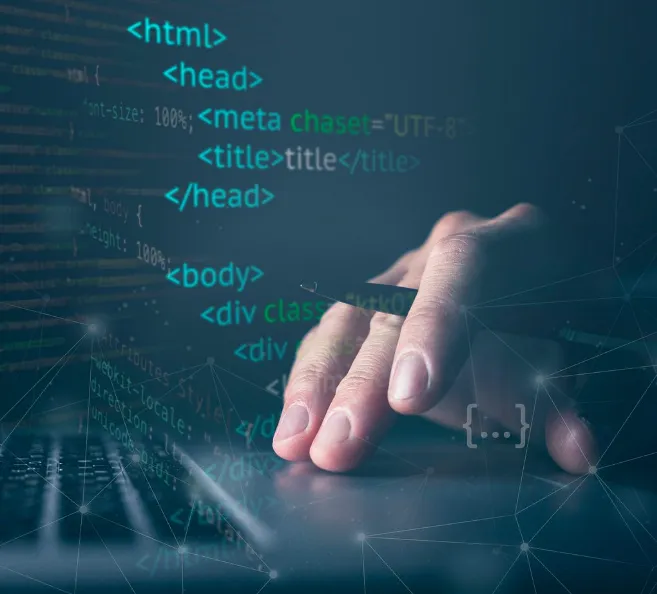As we progress through 2025, it’s becoming clearer than ever that coding is a skill every professional can benefit from. The role of technology in our daily lives continues to expand, making digital literacy essential. Coding, once reserved for tech specialists, is now a valuable tool for people in every industry. Whether you’re a student just starting your career, a mid-career professional, or someone looking to switch industries, learning the basics of coding can give you a competitive edge.
Here’s why coding has become a critical skill for professionals across all fields:
1. Enhancing Problem-Solving and Critical Thinking
At its core, coding is about solving problems. When you write code, you’re constantly breaking down challenges and finding efficient solutions. These problem-solving skills are incredibly valuable, regardless of your industry.
For example:
- Marketing professionals can use coding to analyze customer data more efficiently, helping to create better-targeted campaigns.
- Project managers can learn how to automate workflows, making their teams more productive and improving project timelines.
In 2025, industries are prioritizing innovation, and businesses are eager to hire professionals who are not only creative but can also think logically and analytically to solve problems.
2. Technological Literacy is a Necessity
The digital world continues to grow, and it’s clear that having a basic understanding of technology is no longer optional. Whether you’re in healthcare, education, finance, or any other field, digital tools are transforming the way we work.
For example:
- Finance professionals benefit from understanding how coding is behind the financial technologies (FinTech) they use daily, which can help in automating tasks or creating customized solutions.
- Human resources teams can improve recruitment and payroll efficiency by utilizing automated systems, which requires at least a basic understanding of coding.
Knowing how coding works allows you to better navigate the digital tools that impact your daily tasks and decision-making.
3. Unlocking Career Opportunities in a Tech-Driven World
In 2025, technology isn’t confined to tech companies anymore. Every industry is becoming more reliant on digital tools. Coding can help you stand out in this rapidly evolving job market.
For example:
- A graphic designer with HTML and CSS knowledge can communicate more effectively with web developers and take control of web design projects.
- Entrepreneurs who can code can create their websites or apps, cutting down costs and bringing their ideas to life without needing third-party developers.
- Product managers with coding knowledge will find it easier to collaborate with development teams, streamlining project development.
As more businesses embrace technology, coding can open doors to roles and opportunities that might have been previously inaccessible.
4. Boosting Creativity and Innovation
While coding may seem purely technical, it’s an inherently creative process. Whether you’re working in tech, arts, or business, coding gives you the ability to transform ideas into reality in ways that weren’t possible before.
For example:
- Artists can use coding to develop interactive installations or new forms of digital art.
- Writers can create and manage their websites or even automate social media posting, saving time for more creative work.
- Business leaders can prototype new products quickly, testing and iterating based on customer feedback.
In a competitive job market, the ability to turn abstract ideas into functional products through coding sets you apart.
5. Streamlining Processes and Automating Tasks
Automation is increasingly becoming a standard part of business operations in 2025. Learning to code allows you to automate mundane tasks, increasing productivity and reducing errors.
For example:
- Healthcare professionals can automate patient data entry and track medical research results more efficiently.
- Educators can create custom learning tools or automate grading, allowing more time to focus on teaching.
- Sales teams can automate email campaigns or customer follow-ups, improving outreach without increasing workload.
By automating repetitive tasks, you can focus on the high-value work that requires creativity and strategic thinking.
6. Improving Collaboration with Technical Teams
In today’s collaborative work environment, professionals from various fields are increasingly working alongside tech teams. A basic understanding of coding can help you communicate more effectively with developers, designers, and engineers, ensuring smoother workflows.
For example, knowing basic coding will help you:
- Understand what’s technically possible or not when discussing new projects.
- Break down complex tasks into simpler, more manageable steps.
- Prevent miscommunication with tech teams, which can lead to project delays.
This ability to bridge the gap between technical and non-technical roles makes you a more valuable team member and improves overall project efficiency.
7. Future-Proofing Your Career in a Tech-Driven World
As AI and automation become more prevalent, coding skills are essential to understanding and working with these emerging technologies. Whether you’re in marketing, finance, or any other field, knowing how to code will allow you to harness the power of AI tools to enhance your work.
For example:
- Marketing professionals can fine-tune AI algorithms to improve customer targeting.
- Financial analysts can analyze AI-generated data to make informed decisions based on more accurate models.
By learning coding, you prepare yourself to stay ahead of the curve and remain relevant as new technologies continue to shape industries.
Coding: A Skill for Every Professional
In 2025, coding is no longer just a skill for tech professionals. It’s a fundamental tool for anyone looking to thrive in an increasingly digital world. Whether you’re in healthcare, business, education, or creative fields, learning coding opens up new opportunities, boosts your productivity, and enhances your problem-solving capabilities.
By investing in coding skills today, you’ll be better equipped to navigate the tech-centric landscape of tomorrow. So, regardless of your profession, the question isn’t whether you should learn coding—it’s how quickly can you start?
